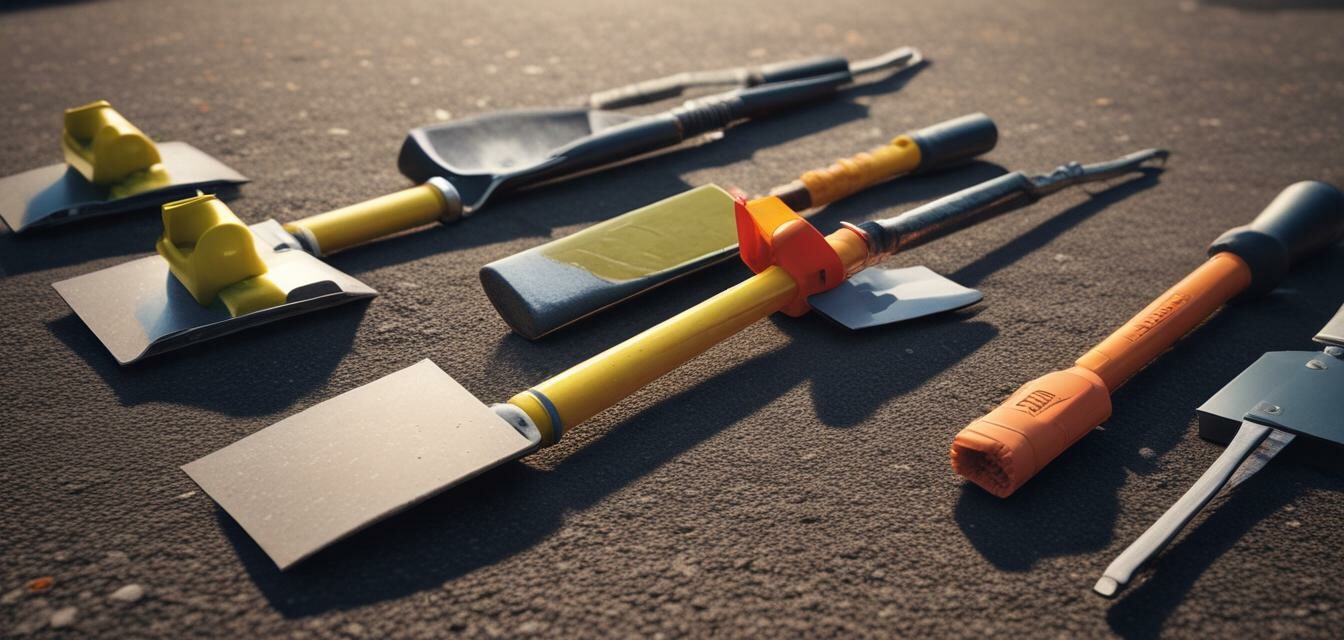
Comparing Different Types of Paving Tools
Key Takeaways
- Understanding the right paving tools is crucial for successful asphalt projects.
- Different tools serve unique purposes, such as laying, compacting, sealing, and maintaining asphalt.
- Investing in high-quality tools leads to better project outcomes and reduces labor time.
When it comes to asphalt paving, having the right tools can make all the difference in the success and efficiency of your project. In this article, we will delve into the various types of paving tools, their applications, advantages, and best use cases to help you make informed decisions.
Types of Paving Tools
Below is a table comparing different types of paving tools, focusing on their applications and advantages.
| Tool Type | Application | Advantages |
|---|---|---|
| Asphalt Pavers | Lay asphalt uniformly. | Ensure flat surface, save time and labor. |
| Rollers | Compact asphalt after laying. | Produce a flat, strong, and durable pavement surface. |
| Trowels | Finish edges and surfaces. | Provide smooth, well-defined edges. |
| Sealant Applicators | Apply sealants evenly. | Extend the lifespan of asphalt surfaces. |
| Edge Trimmers | Trim edges and corners. | Achieve clean and professional finishes. |
Diving Deeper into Each Tool
1. Asphalt Pavers
Asphalt pavers are essential for laying asphalt in a uniform layer. They come in various sizes and are designed to handle different paving projects, from driveways to highways.
2. Rollers
These heavy machines are used after laying asphalt to compact the material down. Rollers can be vibratory, static, or combination types, each designed for specific asphalt compaction requirements.
3. Trowels
Trowels are used to smooth and finish the surface of the asphalt, especially at the edges. They come in various types, including powered and manual versions.
Kezhiho Steel Toe Shoes for Men
Lightweight and comfortable, these steel toe shoes provide puncture-proof protection, ensuring safety on the worksite.
Learn More4. Sealant Applicators
Sealant applicators are specialized tools for applying sealants on asphalt surfaces. Proper application is crucial for maximizing the lifespan of your asphalt.
5. Edge Trimmers
Edge trimmers are used to create neat edges around paved areas. They help in maintaining a professional look for your asphalt jobs.
Choosing the Right Tools for Your Project
Selecting the right paving tools depends on the specific needs of your project. Consider the size of the area to be paved, the type of asphalt mix you’re using, and your budget.
Pros of Using Quality Paving Tools
- Increased efficiency and speed in paving projects.
- Improved quality of finished surfaces.
- Reduced labor costs by streamlining processes.
Cons of Paving Tools
- High initial investments for specialized tools.
- Maintenance and storage can be challenging.
Safety Gear for Paving Projects
Don't forget that safety should always be a priority when working with heavy machinery and asphalt. This includes wearing appropriate safety gear while operating paving tools.
Supa Ant Welding Blanket
A heavy-duty fireproof welding blanket designed for high-temperature applications, providing safe work environments during asphalt tasks.
Learn MoreConclusion
Choosing the right paving tools is essential for achieving successful outcomes in your asphalt paving projects. Evaluating your needs and using the appropriate tools will enhance your efficiency and overall results. Make sure to follow safety protocols and always invest in quality tools to achieve the best results.
Tips for Beginners
- Start with understanding the types of tools available for your specific project.
- Invest in safety gear to protect yourself while working.
- Practice using smaller tools before transitioning to larger equipment.
- Keep your tools well-maintained for optimal performance.
For more information on paving tools, check out our paving tools resources or explore our buying guides to assist in choosing the right tools for your next project.



